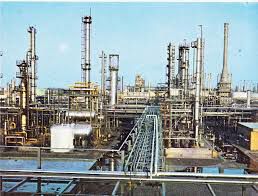THE COMING OF THE BRITISH CONSERVATIVE PARTY TO OFFICE IN 1951 AND THE NATIONALISATION OF THE ANGLO-IRANIAN OIL COMPANY’S CRISIS.
The United States Government always had mixed emotions about getting involved in the confrontation between Britain and Iran. ‘First of all there was America’s traditional hatred of imperialism, and in particular of British imperialism, and her readiness to sympathise with the rights and aspirations of small nations.’15 President Truman, and his Secretary of State, Dean Acheson, expressed concern about Britain’s stand on the Anglo-Iranian Oil Company issue. They viewed it as uncompromising. ‘The Us Secretary of State, Dean Acheson, argued that on the contrary the British should settle with Musaddiq.’16 On the other hand, however, the American Government was much more worried by the possibility of a communist takeover. This fear, in international as well as national politics, justified to Americans the over-riding of principles,
that in ‘normal’ times would never have been questioned. Russia must be ‘contained’, so went the argument. The nations on her periphery are mostly backward and cannot be left to work out their own history, for this will be disintegration and economic chaos, culminating in communism.17
So the American view was that she should develop an active policy of incorporating these small nations into a firm US-controlled cordon sanitaire isolating the Soviet Union from the rest of the world. This could be done to a limited extent according to the American view, by military aid, but much more effectively by economic and financial aid, in effect leading to domination and control.
At this point American political and economic interests interlocked. In March 1951 the US Assistant Secretary of State for New Eastern Affairs, George McGhee expressed the view that
the Anglo-Iranian Oil Company was not giving Iran her legitimate dues, and was therefore responsible for much of the current unrest over oil and the economic instability in the country.18
Until just before the Second World War, the US position in the Middle East had not been very strong. As far as oil was concerned, only 13% of Middle Eastern resources were under US control, as against 80% which was under British control. By 1945, however, the situation was different. The American share had increased to 55%, while Britain’s share had reduced to 41%. Later on came the substantial deals between the AIOC and the major American companies, still further expanding American control, and the rapid growth of the Arabian-American Oil (ARAMCO)’s production in Saudi Arabia. To the Americans,
even the mere elimination of the British company in Persia would be helpful, and its substitution by an American concern would be better still. And if it could be justified on the moral grounds of stopping communism, the other less respectable aspects could be overlooked.19
The Anglo-American rivalry in the Middle East arose from a natural British feeling of resentment at what they considered to be American poaching on their private reserves.20
The Iranian Prime Minister, Dr. Musaddiq, flew to New York in October 1951 to set out the Iranian case. The United States Government seized on his presence in the USA as an opportunity, and intensive talks were held with him in October and November. After the sessions of the Security Council, discussions began in Washington with high level American diplomats, with the occasional presence of Dean Acheson and Paul Nitze, but most of the negotiations were carried out between Musaddiq and George McGhee. It was estimated that McGhee spent 72 hours in discussion with Dr. Musaddiq. President Truman also participated in the talks.
- L. P. ELWELL-SUTTON, op. cit., p. 270.
- B. LAPPING, End of Empire, (London: Paladin Grafton Books, 1989), p. 264.
- L. P. ELWELL-SUTTON, op. cit., p. 270.
- Ibid, p. 271.
- Ibid.
- Ibid, pp. 271-272.



